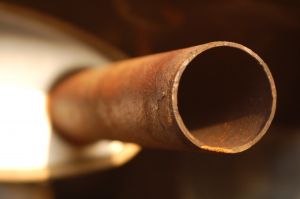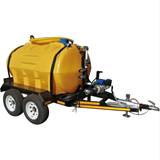In submissions to the senate enquiry on the health impacts of air quality in Australia, experts from QUT's International Laboratory for Air Quality and Health (ILAQH) confirmed there is no 'safe' level of air pollution, just as there is no safe level of smoking.
They said new evidence indicates air pollution causes negative health effects even at concentrations lower than those stated in international health guidelines.
Vehicle emissions are a major source of air pollution, and often contain metals and sulphates that are particularly damaging to health.
ILAQH atmospheric scientist Professor Lidia Morawska addressed the Senate's Community Affairs References Committee's public hearing in Brisbane today.
"Urbanisation here and around the world is bringing more people in close contact with vehicle emissions," Professor Morawska said.
"However, the air pollution mixture city folk are breathing today is changing rapidly with changes to vehicle technology and fuel itself - we simply don't know what the health effects of this changing mix are.
"It is vital we conduct more comprehensive monitoring of air pollution, not only at the existing, out-of-the-way monitoring stations but right at the hot spots where people and vehicles interact.
"Those pollution levels need to be captured in research now so that we can assess what the health risks are and how we best respond to them.
Professor Morawska said urban air pollution was a key issue for Australia, where 68 per cent of the population lives in cities.
"We are particularly concerned about ultrafine particles (UFPs) in the air pollution mix - and their subset, secondary organic aerosols (SOAs) - because of their potential to travel deeper into the lungs as well as into the bloodstream and brain," Professor Morawska said.
"There's still much that we don't know about the health effects of UFPs and SOAs because relatively few studies have been conducted on the topic."
Associate Professor Adrian Barnett from QUT's Institute for Health and Biomedical Innovation has published nine papers specifically on the health effects of air pollution.
His senate submission warned that miners are at particular risk from the negative health effects of air pollution.
Professor Barnett said mine works were at a greater risk because some work many hours underground in poorly-ventilated areas close to machines burning diesel fuel.
"In June 2012 the World Health Organization classified diesel fuel as a known carcinogen, mainly in response to studies of the health effects of miners," Professor Barnett said.
"In my opinion, the Western Australia Department of Mines' recent decision to close down its mine health surveillance program was the wrong decision.
"The program was closed because no short-term health effects were found, but there can be a long delay between exposure to diesel fumes and the onset of lung cancer, just as there is with asbestos exposure."




-160x160-state_article-rel-cat.png)

-160x160-state_article-rel-cat.png)



-160x160-state_article-rel-cat.png)


-160x160-state_article-rel-cat.png)








